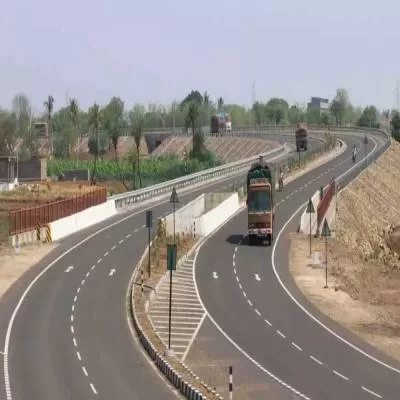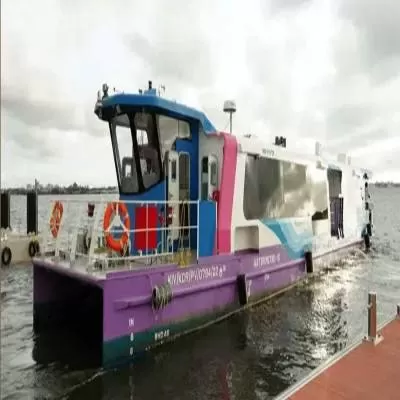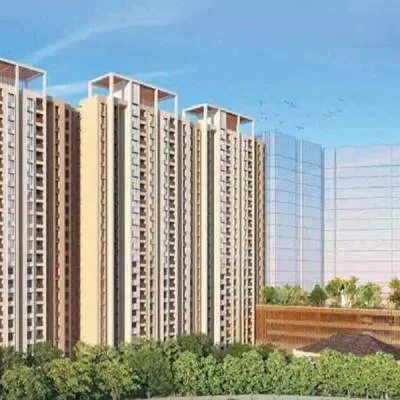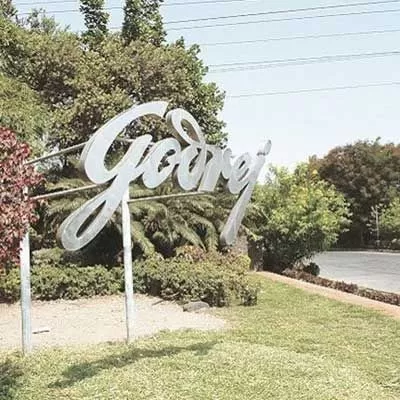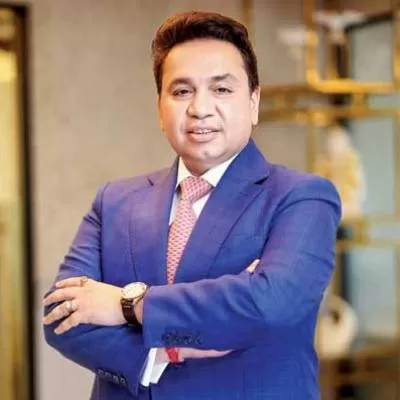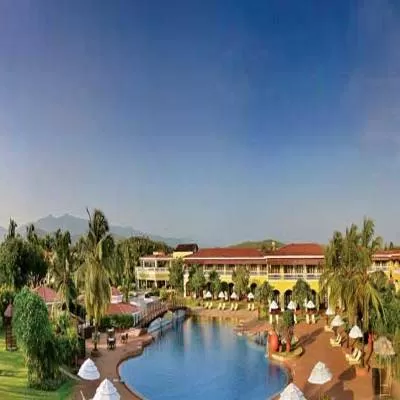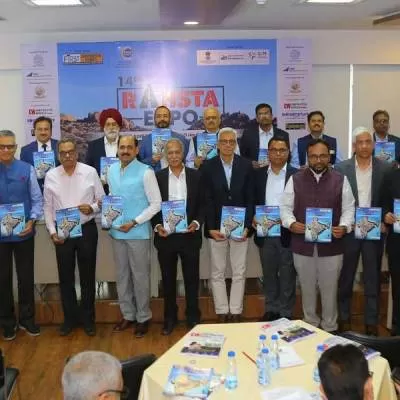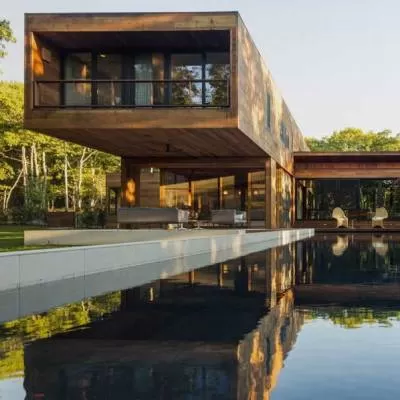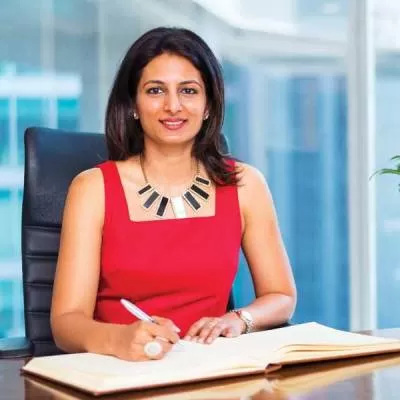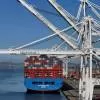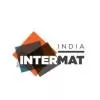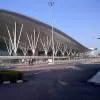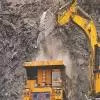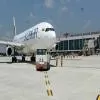- Home
- Real Estate
- International expansion attitude orientation is part of our DNA

International expansion attitude orientation is part of our DNA
This is what you call expertise. With experience of over 30 years across four continents, the stellar track record of Mario Ruzza, Chairman and Managing Director, Tecnimont ICB (Maire Tecnimont Group), in the Engineering Procurement and Construction (EPC) industry speaks for itself. What’s more, the company’s faith in India’s potential is proven by its continuous investment in the sector despite the global slowdown; it has, in fact, emerged as a leader, overcoming every challenge. “With clients like Reliance, the challenge is to be in sync with internationally recognised standards to provide a top-class brand solution,” shares Ruzza. “While with state-owned companies, overcoming the lack of emphasis on time schedules is the trick.” In conversation over an Italian brew with MONISHA RAO, the experienced and enthusiastic Ruzza highlights the company’s operations and the opportunities that India holds.
What kind of technological expertise have you brought into India?
For the past 15-20 years, we have been continuously investing in India. Our EPC projects are high in value and we take pride in continuous improvement and investment in transferring technology, methodology, acquiring the most recent tools, and investing in latest CAD software. Over the years we have imported the capability to design complex projects like polythene and polypropylene plants in India. We provide services that include all aspects, from licensing to handing over the plant to the client. This expertise, which was earlier available only in the most advanced countries like the US and UK, has been gradually transferred to India in a phased manner over the past 15 years.
What has been Tecnimont’s contribution to the power sector?
We have designed and set up different types of power generation plants, from coal feeder to combined cycle gas turbine. Over the past years, we have set up 29 plants, with 18 of them in Italy. Currently, we are scouting projects mainly in power blocks which we can deliver as EP Services and are looking for a synergic partner to carry out this plan.
With India planning to offer at least 56 oil and gas blocks for bidding, how do you plan on capitalising upon this opportunity?
The oil and gas industry can be divided into upstream, midstream and downstream projects. While we have dealt with downstream for a long time, we have moved into midstream and upstream projects in the past six to eight years. Although we are not involved in oil exploration, we are qualified to supervise the flow processes and purification of gas removing sand, water, hydrogen gas, sulphur and mainly H2S, which corrodes the pipeline. We have the technology and are a well-known leader in treating hydrogen and sulphur. With global experience in crude stabilisation and gas treatment plants, we are well established to compete. Moreover, we have recently commissioned one of the largest gas processing plants in UAE.
How different is the quality of projects in India and abroad?
The standard of contractors in India has evolved over the years from a one-man organisation to a structured company with a strong managerial line. TICB is a well established electrical and instrumentation subcontractor. While we have our own electrical and instrumentation work subcontracting division, we have worked with a lot of subcontractors for our civil, mechanical and other construction works in the country who use specialised construction equipment. For instance, in Opal, we have used a state-of-the-art, 600-tonne crane for a polyolefin plant. India’s capability to have developed its own equipment manufacturing unit has worked in favour of the EPC industry. The only difference in projects is the implementation of local laws and the cost of construction involved. Projects in the country follow Indian standards that are derived British standards, which are anyway up to the mark.
With 120 petrochemical plants located in Europe, Middle East, the US and Asia, do you have further expansion plans?
International expansion attitude orientation is part of our DNA. More important, we follow a strategy of establishing a permanent organisation in the area of expansion; for instance, India. Most recently, we have moved to North America because of shale gas and fertiliser projects. We are currently operating in Mexico and are now focussing on Indonesia and Malaysia. Our expansion strategy is to explore the opportunity, establish ourselves and then consolidate it in a phased manner.
How does it ensure safety?
The health, safety and environment (HSE) management system forms part of one of our best and important departments. We believe all our colleagues must operate in a safe environment. Therefore, we pay utmost attention to the safety aspect from the very beginning during engineering and on-site activities. Also, utmost focus is laid on supervision. We follow a strict supervision policy in India and international standard safety procedures in all our projects and practice zero incident target. Maire Tecnimont Group’s Lost Time Injury Frequency is 0.003 as against International Reference Benchmark of 0.09. Also, the Total Recordable Injury Rate is 0.05 as against the International reference benchmark of 0.38.
Highlight the emphasis do you lay on training?
TICB lays strict emphasis on imparting continuous training on both basic and specialised grounds. We are also associated with the International Project Management Association (IPMA), a federation of over 55 member associations who develop project management competencies in their geographic areas of influence by interacting with thousands of practitioners and developing relationships with corporations, government agencies, universities and colleges, as well as training organisations and consulting companies. Almost all our project managers are certified by IPMA and are highly appreciated in the industry – a sign of distinction.
How has your financial performance been in the past fiscal year in India?
With Mumbai being our strongest centre of full range of engineering services, Tecnimont ICB contributes to 60-65 per cent of the entire engineering capabilities of the Maire Tecnimont Group. Our performance in recent years has been very satisfactory, with a constant flow of engineering services exported worldwide for which we have received various awards. We look forward to some economic recovery in India and the world. I am also confident that after the elections, the new government will bring a new push to activities. Nevertheless, we have been a profit-making organisation all these years and, in a nutshell, are optimistic about the future.
Year of Establishment: 1958
Top Management: Mario Ruzza,Chairman & Managing Director; G Bardazzi,Director; Enrico Rolandelli, Director; Vishwas Desai,Director-HR and Administration;
B Thiyagarajan, Director-Procurement and Information Technology; PSP Rao, Director-Operations.
No of Employees: 1,700
Centres of Operations: India, UAE, Milan
Ongoing projects: Butyl Rubber, Reliance Sibur Elastomers, Jamnagar, Gujarat; LDPE Unit, Reliance Industries Ltd, Jamnagar, Gujarat; LLDPE/ HDPE Swing Unit, ONGC Petro Additions Ltd, Dahej, Gujarat; Polypropylene (PP) Unit (India), ONGC Petro Additions Ltd , Dahej, Gujarat; Heavy Coker Gas Oil Hydrotreating Unit, Mangalore Refinery & Petrochemicals Ltd, Mangalore, India
Turnover: Rs 1,213.80 crore (FY 2012-13)
Mario Ruzza, Chairman and Managing Director, Tecnimont ICBThis is what you call expertise. With experience of over 30 years across four continents, the stellar track record of Mario Ruzza, Chairman and Managing Director, Tecnimont ICB (Maire Tecnimont Group), in the Engineering Procurement and Construction (EPC) industry speaks for itself. What’s more, the company’s faith in India’s potential is proven by its continuous investment in the sector despite the global slowdown; it has, in fact, emerged as a leader, overcoming every challenge. “With clients like Reliance, the challenge is to be in sync with internationally recognised standards to provide a top-class brand solution,” shares Ruzza. “While with state-owned companies, overcoming the lack of emphasis on time schedules is the trick.” In conversation over an Italian brew with MONISHA RAO, the experienced and enthusiastic Ruzza highlights the company’s operations and the opportunities that India holds.What kind of technological expertise have you brought into India?For the past 15-20 years, we have been continuously investing in India. Our EPC projects are high in value and we take pride in continuous improvement and investment in transferring technology, methodology, acquiring the most recent tools, and investing in latest CAD software. Over the years we have imported the capability to design complex projects like polythene and polypropylene plants in India. We provide services that include all aspects, from licensing to handing over the plant to the client. This expertise, which was earlier available only in the most advanced countries like the US and UK, has been gradually transferred to India in a phased manner over the past 15 years.What has been Tecnimont’s contribution to the power sector?We have designed and set up different types of power generation plants, from coal feeder to combined cycle gas turbine. Over the past years, we have set up 29 plants, with 18 of them in Italy. Currently, we are scouting projects mainly in power blocks which we can deliver as EP Services and are looking for a synergic partner to carry out this plan.With India planning to offer at least 56 oil and gas blocks for bidding, how do you plan on capitalising upon this opportunity?The oil and gas industry can be divided into upstream, midstream and downstream projects. While we have dealt with downstream for a long time, we have moved into midstream and upstream projects in the past six to eight years. Although we are not involved in oil exploration, we are qualified to supervise the flow processes and purification of gas removing sand, water, hydrogen gas, sulphur and mainly H2S, which corrodes the pipeline. We have the technology and are a well-known leader in treating hydrogen and sulphur. With global experience in crude stabilisation and gas treatment plants, we are well established to compete. Moreover, we have recently commissioned one of the largest gas processing plants in UAE.How different is the quality of projects in India and abroad?The standard of contractors in India has evolved over the years from a one-man organisation to a structured company with a strong managerial line. TICB is a well established electrical and instrumentation subcontractor. While we have our own electrical and instrumentation work subcontracting division, we have worked with a lot of subcontractors for our civil, mechanical and other construction works in the country who use specialised construction equipment. For instance, in Opal, we have used a state-of-the-art, 600-tonne crane for a polyolefin plant. India’s capability to have developed its own equipment manufacturing unit has worked in favour of the EPC industry. The only difference in projects is the implementation of local laws and the cost of construction involved. Projects in the country follow Indian standards that are derived British standards, which are anyway up to the mark.With 120 petrochemical plants located in Europe, Middle East, the US and Asia, do you have further expansion plans?International expansion attitude orientation is part of our DNA. More important, we follow a strategy of establishing a permanent organisation in the area of expansion; for instance, India. Most recently, we have moved to North America because of shale gas and fertiliser projects. We are currently operating in Mexico and are now focussing on Indonesia and Malaysia. Our expansion strategy is to explore the opportunity, establish ourselves and then consolidate it in a phased manner.How does it ensure safety?The health, safety and environment (HSE) management system forms part of one of our best and important departments. We believe all our colleagues must operate in a safe environment. Therefore, we pay utmost attention to the safety aspect from the very beginning during engineering and on-site activities. Also, utmost focus is laid on supervision. We follow a strict supervision policy in India and international standard safety procedures in all our projects and practice zero incident target. Maire Tecnimont Group’s Lost Time Injury Frequency is 0.003 as against International Reference Benchmark of 0.09. Also, the Total Recordable Injury Rate is 0.05 as against the International reference benchmark of 0.38.Highlight the emphasis do you lay on training?TICB lays strict emphasis on imparting continuous training on both basic and specialised grounds. We are also associated with the International Project Management Association (IPMA), a federation of over 55 member associations who develop project management competencies in their geographic areas of influence by interacting with thousands of practitioners and developing relationships with corporations, government agencies, universities and colleges, as well as training organisations and consulting companies. Almost all our project managers are certified by IPMA and are highly appreciated in the industry – a sign of distinction.How has your financial performance been in the past fiscal year in India?With Mumbai being our strongest centre of full range of engineering services, Tecnimont ICB contributes to 60-65 per cent of the entire engineering capabilities of the Maire Tecnimont Group. Our performance in recent years has been very satisfactory, with a constant flow of engineering services exported worldwide for which we have received various awards. We look forward to some economic recovery in India and the world. I am also confident that after the elections, the new government will bring a new push to activities. Nevertheless, we have been a profit-making organisation all these years and, in a nutshell, are optimistic about the future.Year of Establishment: 1958Top Management: Mario Ruzza,Chairman & Managing Director; G Bardazzi,Director; Enrico Rolandelli, Director; Vishwas Desai,Director-HR and Administration; B Thiyagarajan, Director-Procurement and Information Technology; PSP Rao, Director-Operations.No of Employees: 1,700Centres of Operations: India, UAE, MilanOngoing projects: Butyl Rubber, Reliance Sibur Elastomers, Jamnagar, Gujarat; LDPE Unit, Reliance Industries Ltd, Jamnagar, Gujarat; LLDPE/ HDPE Swing Unit, ONGC Petro Additions Ltd, Dahej, Gujarat; Polypropylene (PP) Unit (India), ONGC Petro Additions Ltd , Dahej, Gujarat; Heavy Coker Gas Oil Hydrotreating Unit, Mangalore Refinery & Petrochemicals Ltd, Mangalore, India Turnover: Rs 1,213.80 crore (FY 2012-13)


